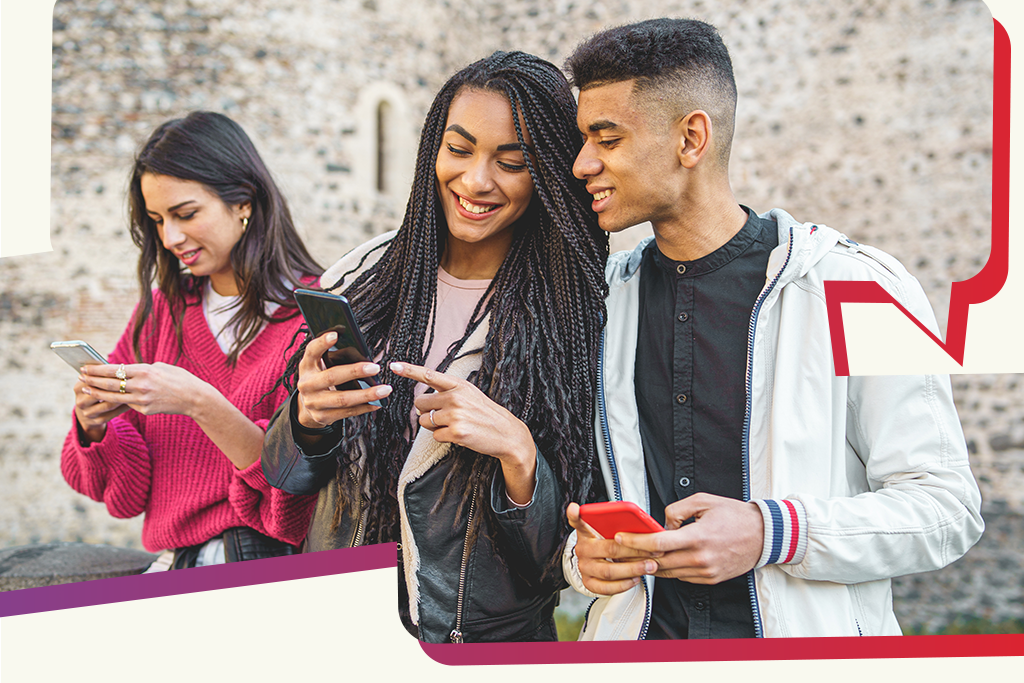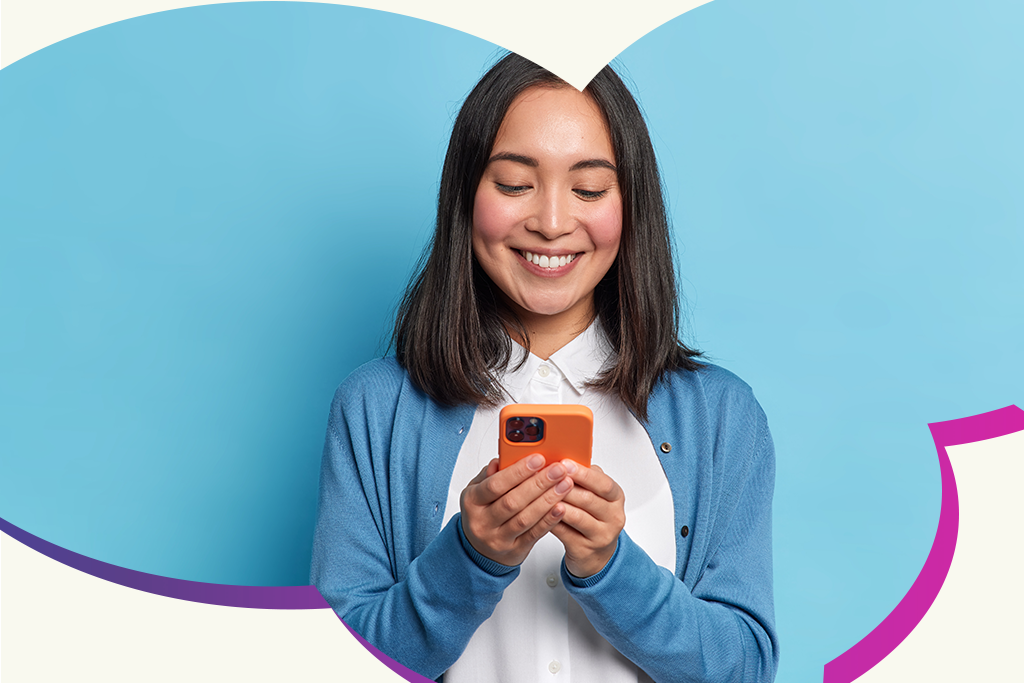79% of Quora users in India are interested in learning new skills. The highly-engaged nature of this knowledge-seeking community on Quora has helped a number of brands find success with Quora Ads—especially within the education space.
Source: GWI Core India 2021
Quora joined hands with Gus to showcase how education institutes can effectively engage with their target audience on Quora. In this session, we explore Quora from an education marketer’s perspective and share interesting insights and tips to help you with your next campaign.
What you can expect to learn from the session:
-
A quick glance at what makes Quora’s audience unique
-
How Quora can become every education marketer’s best friend
-
Inspiration and insights from universities that have seen success on Quora
Once again, hello everyone and thank you for joining us today for an interesting session on education marketing on Quora. I’m Anjul Tyagi, Head of Customer Success at Quora APAC. And with me, I have Iffath who heads paid social and SEM for Gus Education. In the next few slides, Iffath and I will be sharing some interesting insights and trends about Quora users in the education space. We will also be sharing details about Quora’s agency partnership program and how it can benefit you. Our presentation will be followed by a chat with Neha Chimbulkar, Head of Marketing at Quora APAC and our guest speaker Marko, Marketing Director Berlin School of Business and Innovation. Please feel free to post your questions in the questions box any time during the webinar. And now without further ado, let’s drive in.
Anjul Tyagi (00:58):
Quora was founded in 2009 by Adam D’Angelo and his mission is to share and grow the world’s knowledge from questions like what CRM should I choose for my startup to what’s latest in fashion? Quora is really a place where users are actively seeking solutions and connecting with experts who can answer them. In 2018, Quora launched Quora Ads and since then we have been adding new formats, targeting options, and even integrations to continue to serve brands on our platform. As you can see, there are 300 million plus unique visitors on Quora globally, and India is our second largest market in terms of users, followed by some of our key markets like Southeast Asia with 29 million monthly unique visitors, UK with 28 million, Europe with around 20 million and Canada with 15 million monthly unique visitors. We have some interesting audience insights on our users coming up later in the presentation.
Anjul Tyagi (02:08):
The users on Quora are diverse in nature. We have professors, education mentors as well as business owners and students. People learn from each other on Quora and that’s what makes it so unique. In fact, a lot of our users discover the platform by asking a question and search engine and they end up on Quora beginning their learning journey. Another important aspect and integral part of Quora’s platform is the assignment of topics to the questions being asked. In addition to what you see here, Quora covers a wide list of over 300,000 plus topics and that’s growing and this is just based on the questions being asked. This is a super important detail because each question on Quora is assigned to topics that are contextual labels. So it can range from broader topics like education, college advice to more specific ones like international students. These topics, keywords and questions are all opportunities for brands to target high intent and contextually relevant audiences.
Anjul Tyagi (03:18):
Quora also hosts business profiles on the platform, which are official brand pages on Quora through which businesses can join online conversations about their brand or their category. As you may have noticed, many household names from the education category are already present on Quora, and these are just a few examples. Every conversation on Quora is driven by the community. So the users who came here for an answer are using upwards and engagement to really highlight what answers are most valuable to them. And that’s exactly how our system really works. So when you look up a question seeking an answer, you will see some very relevant answers at the top of your feed and that’s what keeps our users engaged and get them coming back to Quora. So it’s fresh and it’s exciting every time you come to Quora looking for those answers and the best stuff is there at the top. It’s always evergreen and so easy to find.
Anjul Tyagi (04:22):
What makes Quora so different from other platforms is, it’s not just a passive browsing platform. It’s not a place where people have already made up their minds. Their user mindset on Quora is more about I’m actively learning, I’m researching, I’m investigating, I need more time and information, I’m not ready to make a decision yet, but I’m getting close and I really need feedback from people that have been there and have personal experience to back it up. It’s not your friends or family that you’re following on the platform. Quora is designed to surface what are the best questions and answers based on your interest and the questions you’re consuming across the platform. And as we all know, the buyer journey is not just a funnel, it’s rather a process of a lot of research and thinking before making a final decision. In fact, our global survey partner GWI has reported that 67% of Quora users in India conduct research regularly before making purchases. So being able to reach audiences in this deep research mode can be a prime moment to influence their next move.
Anjul Tyagi (05:37):
People come to Quora for a lot of reasons. It could be to evaluate and compare different products or different brands. It could be to do research, read reviews and get all the information you need before making a major decision. It can be gain knowledge for people who want to learn something new or it could be to find support and get feedback from peer groups or product experts that are answering these questions on the platform, or as simple as seek advice and tips from peer seniors and experts to follow your dreams. Now let’s look at some stats which are really interesting. 51% of Quora users conduct online product research through consumer reviews. Quora users are 50% more likely than vet users to make a major purchase online. Now, as we know, it’s more to do with education.
Anjul Tyagi (06:42):
Let me share something interesting about education. So education is one of the most important categories on Quora, views on education content grew with over 31% year on year in 2022. Quora users, as you can see is as one of the stats are 129.8% more likely to buy learning apps or programs. Let’s take a look at some of the related topics as well. One of them being postgraduate, which might interest some of you. 12.6 million users follow postgraduate topics on Quora and the content view grew by over 38% in the last one year, around 64% of graduate students on Quora use education apps and websites. Let’s look at undergraduate. We have over 10 million followers following the undergraduate topic. Undergraduate content saw a 30% growth month over month used in July, 2022. And the next one is online education, which is a part of everybody’s life today. Quora users are 68% more likely to purchase digital study programs and learning material. We saw a 28% increase in content views in the last one year.
Anjul Tyagi (08:05):
Let’s understand how businesses are using Quora. It’s these unique insights around trends and topics that our team leverages to help develop an effective ad strategy for each unique partner that we support across the entire customer journey. No matter what your KPIs are, whether it’s brand building, driving sales, building brand trust, or even consideration, with a combination of our targeting capabilities, add formats and good version tracking, we can put together a tailored strategy and deliver against a wide variety of target KPIs.
Anjul Tyagi (08:42):
Let me quickly share a few examples of brands that are running ads on Quora from different parts of the world. We take a closer look at how few brands have leveraged these insights, but first let’s dive into some key insights around Quora’s high value audience. But before that, let me just highlight a point, as you can see on this particular slide, there are a variety of brands from the education space and home grown brands like UpGrad, which is into online programs. Then we have Berlin School of Business Innovation, we’ll be talking more about it. We have University of Adelaide, London Academy of Trading and more. So all these brands that you see here come with a variety of reasons, they have a variety of objectives, so I’ll talk more about this in the coming slides.
Anjul Tyagi (09:37):
Now let’s look at some of our audiences’ behavior. Global Quora users are 43% more likely to discover brands via ads they have seen on social media compared to global average internet user. Whereas Reddit and Twitter users are only 25 and 30% more likely to discover brands via ads they have seen on social media. Similarly, global Quora users are 57% more likely to click on a promoted or sponsored post on a social network compared to the global average internet user. Whereas Reddit and Twitter users are only 47 and 29% more likely respectively to click on promoted posts. Let us specifically talk about education research on Quora.
Anjul Tyagi (10:29):
As you can see here, 56% of Quora users conduct product and brand research on social networks. Quora users show high intent in starting abroad. We have picked up a few questions from different segments of our users. As you can see, they are doing research about the right degrees, the education cost, location, which university to enroll in and many more. Looking for the right university and degrees is always in discussion on Quora and it peaks just before the admission cycle every year. As you can see, again, there are a lot of questions which are not just limited to one particular geography or location. There are questions which are targeted to a variety of colleges, universities, and even geographies.
Anjul Tyagi (11:22):
Now let’s look at how a few brands have leveraged these insights. I start with BSBI. Berlin School of Business and Innovation is a private school that helps graduates become exceptional leaders. They wanted to focus on generating quality leads for its graduate and postgraduate programs, while encouraging prospective foreign students to enroll with the institution. BSBI aim to utilize Quora to reach high intent students and drive traffic to its website growing conversions and ultimately admissions. With the help of topic targeting, audience targeting BSBI achieved around 1.4 times increase in lead rate and about 50% decrease in their cost per lead over a period of 14 months.
Anjul Tyagi (12:14):
The next one is a success story from the University of Chicago, which was targeting US geography. The University of Chicago focuses on innovative learning like learning approaches that meet students and company needs while upholding the university’s distinct brand of academy excellence. With spring application deadline approaching, they were eager to reach and engage prospective students and drive more information requests for their Master of Science degrees. So they leveraged Quora’s Lead Gen form to instantly acquire high intent prospects and drive them to complete a valuable action, which is filling up the Lead form. The team was pleasantly surprised to find that they had underestimated Quora’s potential. The University of Chicago actually received five times more information requests with CPS being 63% lower compared to Facebook.
Anjul Tyagi (13:07):
And finally, another really interesting success story is from Arden University, which is based in the United Kingdom. It offers a variety of undergraduate and postgraduate programs with both blended and online distance learning delivery options. They targeted individuals interested in obtaining their degrees online, particularly users seeking advice to assist in their decision making process via promoted answers. Now, Arden University generated over 3 million content views, about 800 plus leads and 400 plus additional re-inquiries. Quora aided their growth and exposure and target regions of Africa and the Middle East while also making their programs available to those who are willing to enroll online or in person.
Anjul Tyagi (13:56):
And finally talking about an insight that I’m really excited about. So we have a lot of different and exciting developments on the roadmap, one of which is video ads. In addition to image ads, promoted answer and lead generations, video is the newest way for brands to now engage with Quora’s audience, and as our agency or brand partner, we want you to know about it first and have an opportunity to test those new things out, Quora partners are getting access to these new features. So yeah, this is something that’s really exciting and we would really love you all to try it out. And now I would like to invite Iffath to talk about our partnership for Quora and Gus. Over to you Iffath.
Iffath Unisa (14:52):
Thanks so much Anjul. As you’ve seen, we have a lot of options available for marketing when it comes to higher education. No student is the same, neither is any university or college the same. And this leads to a lot of discussion on what is probably the best choice for any student when it comes to education. So this is where various marketing channels have been helping us plug the various gaps that we have in the funnel, the marketing funnel. So social media is already established itself for branding the marketing while Google search ads have established themselves for their search intent. So why Quora? So according to, 92% of the searches done are long tail and with voice audio searches. Now adding to this we see that the long tail searches list is growing. So this is where I think Quora fits in perfectly and it also brings in an important factor along with the marketing channel, which is the audience.
Iffath Unisa (15:55):
We see that the audience is highly academic and intellectual. They are very keen on coming together, collaborating to share information in Quora communities and they also help promoting a lot of the brands that are out there for higher education. This also puts across the need for various education brands to also monitor the online reputation that is also being discussed by students on the platform. The other differentiating factor I think about Quora is obviously the various ad formats that are available. So now that Anjul has also offered Gus as an entity to be included for video ads as a beta test, we are not left behind in terms of other competition with regards to social media. We have the usual text image and video formats that are already available with the meta or Google ads or for that matter with LinkedIn. So how is Quora very different?
Iffath Unisa (16:57):
Quora is different because along with the various feeds and stories and Q and As that are available, Quora allows for you to promote specific answers which are going to address specific questions that the users may have. So it’s basically an organic answer that’s delivered on Quora and it uses topic targeting, contextual targeting, keyword targeting, interest targeting, various targeting options that are available. These can be paired up with all the Quora ads and basically an answer, a URL of an answer written by you or the brand or another user at the university can be utilized as a promoted answer. So I believe this is one of the key differentiating factors that we have available on this particular platform.
Iffath Unisa (17:46):
Some of the GUS brands that have already been on Quora for the last three to four years, so Arden started out to make sure that it’s establishing its presence on Quora by doing branding and they saw an incremental increase in 3 million views after three quarters and they were also able to get 800 plus leads from countries such as Africa, Nigeria, Ghana, and of course India as well. While UPES has been on the Quora platform for the last four years, in fact they continue to invest every year as it’s key for monitoring the consideration piece of their student questions, interactions, et cetera. I think LATs been the latest to join the brand wagon for the various Gus brands that are on Quora. BSBI I think has been remarkable in terms of not only being able to do branding, ORM, generating leads from countries like it. Nigeria, Ghana, India, they were also being able to establish sales from these particular leads as well.
Iffath Unisa (18:52):
So definitely quality is established as a channel for Quora. So moving on to now some of the best practices that we should definitely test with higher education brands. I just want to talk about some of the key things that you should definitely test out when starting out on and some of those various formats that are available for a full funnel approach. I think promoted answers is obviously a key focus but do also the other formats because we do have all of these creators already ready for the other platforms and it would definitely help understand how intellectual users and learning users from Quora basically interact with your brands.
Iffath Unisa (19:44):
I think as a next step in terms of out with Quora, it would be to reach your local SEOPOC because the SEO team is also keen on maintaining an organic presence on Quora to build a thick profile for your brand and start writing down a few of the Q and As that you would like to address from a consideration point of view for the students, it could be the USPS of the brand, it would be why your specific college to be chosen in a certain location. It could be as specific as why a specific degree in a particular location or why study abroad in Canada or in UK or in Germany. So it could be any variety of these topics, but if you already have insights into what are the different consideration questions that users are talking about negotiating or trying to understand more about, I think that’s a great opportunity to utilize.
Iffath Unisa (20:43):
So once we have an established some organic answers on the Quora website, the next step would be to understand what is the interaction and try to see what type of questions we are getting on these question answers. And then also try and interact with the students or people asking questions about the specific Q and As and look at which ones being more of a success. And these promoted answers or ads can then be basically utilized starting November because the intake usually ends around September October. We can then start slowly in terms of having your conversion care campaigns set up. You can even utilize your lookalike campaigns, test out your video like a campus store maybe and basically get started in terms of the Quora ads.
Iffath Unisa (21:32):
Moving on now to the Gus and Quora partnership, we basically have dedicated Quora experts. We have a Customer Success Manager such as Anjul or Rishabh working closely to help you identify, plan and execute all the different priorities that you might want to achieve with the Quora ads. We also have dedicated training and basically Q and A discussions, they are always available to answer your questions that you might have, category insights made available to you for specific areas. If there’s some consideration questions that you’re looking to start out with and not really sure where to dig in, I think definitely the team would be happy to provide you that support.
Iffath Unisa (22:18):
We also have expedited clients support in terms of ad copy consultations and they would also help you get these expedited in terms of approval and going live. And last but not least, we also have exclusive access to the beta features and we participate in a lot of the initiatives that Quora is taking up. We hope that you can definitely get started on your university profile at Quora soon. This pretty much marks the end of my slides, but I would now like to hand over to Neha for a fireside chat with Marko. In case you have questions and which haven’t been answered, please know that we will definitely get back on that. Over to you Neha. Thanks.
Neha Chimbulkar (23:08):
Thank you. Thank you so much. Thank you so much. That was very, very insightful. Anjul and Iffath, the session on education marketing on Quora was extremely helpful for us to understand how brands are leveraging. You have shared some great insights and context on brand engaging with their target audience and I think there is a lot of food for thought for brands and agency representatives today on the call in terms of success story and the approach that you have shared just to reemphasize the importance of how education institutes can effectively engage with their target audience on Quora. So we have a very highly engaged nature of this knowledge community that’s on Quora and we’ve helped number of brands achieve success with Quora ads. And to share one such phenomenal success story, I would like you to welcome Marko for a fireside chat on leveraging the power of intent. Hi Marko, glad to have you.
Neha Chimbulkar (24:05):
So very quick introduction. Marko was a marketing director at the global University systems and is spearheading all their marketing efforts for one of his business schools, Berlin School of Business and Innovation. He began his marketing career in the United States working for some of the biggest names in the hospitality industry like the Ritz-Carlton and Fairmont Hotels. Following his move to the UK four years ago he started working in the education sector. Together we look forward to deep dive into the understanding of how education brands like BSBI have leveraged the high intent platforms to reach their marketing goals. And with that, let’s dive right into it. So Marko, just wanted to understand what are some of your observations on consumers in the post pandemic world and how can grant leverage platforms like Quora to reach these consumers?
Marko Manojlovic (25:00):
Yeah, well first of all, thank you so much for having me. Great presentations so far. Really, really fun and informative. Of course, BSBI knew a lot of this already, therefore we started using it last year. But with the pandemic, obviously the two things that I noticed in the consumer behavior, first of all being… And I think it was mentioned earlier, the flexibility. People want more flexibility when it comes to education of course, we talk about online or hybrid models taking the classes around their schedules and other obligations. And I think in the pandemic and post pandemic kind of markets, the brands that have been able to implement things that kind of respond to that new need of the customers have managed to gain from otherwise very unfortunate and a bad situation. The other thing that came with kind of the pandemic, I think that people now need, well pandemic and the high inflation rates that we’re seeing now, people need more convincing.
Marko Manojlovic (26:17):
Obviously the money is not worth as much anymore. It doesn’t go as far as maybe a couple of years ago, a lot of people were laid off or a financial instability, things like that. So, that extra kind of nudge is necessary. And talking about Quora, this is I think where I personally see a lot of value with the platform because it’s very well trusted, like you mentioned, it’s different people from all walks of life coming to actually learn the brand. The company itself really is adamant to preserve that trust and kind of clam down on fake accounts and stuff like that. So the trust is the first kind of thing that comes to mind when we think about Quora and that’s where I think were successful during the last two years and now in the post pandemic world with Quora that provided us that trust from its audience. And when we establish ourself within the platform, it was just kind of going from strength to strength.
Neha Chimbulkar (27:29):
That’s very, very interesting Marko, because especially the fact that you’ve highlighted that brands learn to be flexible and we’re working towards building consideration and as well as trust for their products and services. So taking that thought ahead, we’d love the audience to know what are some of the tips on how brands should be looking at exploring intent based platforms? Is there something specific that they should be doing?
Marko Manojlovic (27:58):
Right. Well I think us as marketers to get to that point where we understand, the first thing, obviously understanding our audience, what that persona is, it all starts with that. But then all the work and the grunt work that goes into getting to the point where we can really customize the message for a certain part of the audience to where it clicks and has that emotional response. I think that’s the beauty that we’ve seen with Quora where everything’s high topic and interest intent and it’s already kind of laid out for us to use to the best of our abilities. Like you said, there are different topics, almost all of any topic you can imagine, but then you can delve deep into, we’re talking about education now, so is it postgraduate? What kind of programs? Is it finance, is it business, is it anything else in between? So I think it’s just a no brainer because knowing your persona and having the right message, platforms like Quora just help you all ready, send that message to the right audience and really, really micro target the ideal audience for certain programs.
Neha Chimbulkar (29:25):
That’s actually a very, very interesting approach and I’m glad you highlighted that because a lot of marketers understand that, but they don’t really go about really identifying and understanding their audience and then customizing that message to drive those clicks. So just to understand this further, can you share how you leverage a platform like Quora to drive to the full funnel or to the entire customer funnel, the journey for your brand’s objectives, so how you are planning to use it in the coming times, We’d love to know your perspective on that.
Marko Manojlovic (30:02):
Yes, so a bit of backstory. We started running paid campaigns in Quora in October 2021 for our IT programs and business management programs. Obviously started with the topic targeting to really pinpoint that high intent audience. We then tested as well and worked with keyword and keyword history campaigns as well. And from the get go we really had an amazing kind of performance. You mentioned some numbers I think already in terms of the lead to app rates and lead to sale rate, lead to sale, I think the highest, it went almost to 2%. Our lead to app rates are anywhere between 12 and 20%, which I mean right off the bat it just tells you the quality and the relevancy of the leads that we were getting from this platform. But I think the real kind of game changer was when we started to post some organic content as well that complimented the paid campaigns that we already had.
Marko Manojlovic (31:21):
So that started in February 2022 and there’s two sides to it, obviously the first one is just posting on our profile, and for us we were reusing content, we’re producing a lot of content anyways, so we were just reusing some of it for this platform. And again, right from the get go it was an amazing response from the audience in Quora, you mentioned I think 5.7 million views by now. That’s almost 10 million views of all of our content on our profile. And then the second part of this organic approach was the promoted answers as well. This content was used for promoted answers, which kind of further just solidified our brand and our visibility within this high intent kind of audience.
Marko Manojlovic (32:12):
And this is something we’ve tested different regions, obviously there was a lot of testing in between all of this. The most of the success came from some African and southeast Asian countries, which is not a surprise. That’s usually where a core customer is. So I can only imagine for other brands that their core audiences in North America, for example, where Quora has the most of its users, I can’t even imagine the success, the potential success. So for us it’s been really, really an amazing ride from the get go and we’re just at this point, it’s just one of our tools in our arsenal. Its not even a question if we’re using it or not using it, it’s just how do we improve it even more.
Neha Chimbulkar (33:04):
Thank you so much. I think that was a great share Marko where especially how you build on topic targeting to drive intent and you tested keyword targeting. There are a lot of times we’ve walk brands through leveraging it and the way you have done it at BSBI is beautiful. So now as we come towards the end of the session, we had one quintessential question for you. What are the three marketing trends you foresee shaping up in 2023? We are so close to the end of the year. I mean who knew it would pass by so quickly? So how is it that you are gearing up and what are the trends that you see?
Marko Manojlovic (33:39):
I think there are so many, which kind of makes it kind of hectic but also super exciting for everybody who’s in marketing. I think first one I would point out is probably I think the boom in the influencer marketing will continue to grow. That coupled with streaming and video based content I think is going to be a winning combination with millennials, but definitely with Gen Z specifically talking about, for example, TikTok, small little bite size video clips that people just love and it’s going to be a winning combination and it’s also something that since last year we’ve started exploring for BSBI. Other than that, as we’re trying to find new ways to really understand our personas, our customers, our audience, big data, we’ll continue to drive that forward. Kind of modeled conversion data as well, kind of really understanding how we got that converted lead.
Marko Manojlovic (34:50):
Usually we have that last touch point where it comes from a certain channel, but understanding fully the trajectory of that lead that led them to being converted into a student is something that at least us at BSBI, this is still something that we’re developing and trying to understand, but there are some tools in the pipeline to help us with that. And for that I’m really excited because that’s going to fill in certain gaps that help us understand when it comes to holistic marketing approach, how every point of that holistic approach is contributing to creating those conversions.
Marko Manojlovic (35:34):
Two, yes, the really, really interesting thing for me is we’ve all heard about in the last couple of years issues with cookies and the privacy and the whole Apple thing and us being unable to really track anybody who comes from an Apple device. So as those are being kind of faded out, I’m really looking forward to see what kind of technical solutions, all of these giants, Google, Amazon, all the others will come up with and how that’s going to look, be used, and how precise it’s going to be compared to the cookies that we had in the past. So I guess that’s three, obviously there’s a lot to talk about. And again, going back to the trust and needing more kind of nurturing when it comes to audiences post pandemic. I think anything regarding branding and kind of image management is going to be huge as well.
Neha Chimbulkar (36:41):
Right. Thank you so much Marko. I think it is so important to nurture your clients once you have that lead with you, how you keep reaching out to them at the right moment to convert them. That whole customer journey is so important. Whether it’s via influencer marketing, whether it’s via various ad formats that you have. So it’s been very interesting to know your perspective in terms of how you are planning to implement your next move. So in terms of… First of all, I’d like to thank you very much that you’ve shared your perspective on education, marketing and how best to leverage the power of intent. I really like the way you highlighted the consumer journey. It’s not very linear, so you need to create multilayered content to drive the consumer through the funnel and how it is important to marry content with context to drive intent.
Neha Chimbulkar (37:32):
So I think that’s a great takeaway for our audiences today. And what I also took away was trying to test platform, not just stick to one platform, but try and figure out what more you can do with your content and how you can build sub pieces and keep engaging with the audience, keep nurturing them. So thank you once again for your time. I hope all of you found this discussion as exciting as I did. Thank you everyone for joining in today. We really enjoyed hosting this session for you. We’ll be sending the recording and the presentation to your registered email addresses and if you have any questions for us, do not hesitate to write back. And if any questions in the question section were left unanswered, our customer success team will reach out to you. So we look forward to enabling you with Quora ads and building more success stories like we did with BSBI and with Marko. Thank you so much. Have a great day. Thanks Marko.
Marko Manojlovic (38:28):
Thanks so much.








